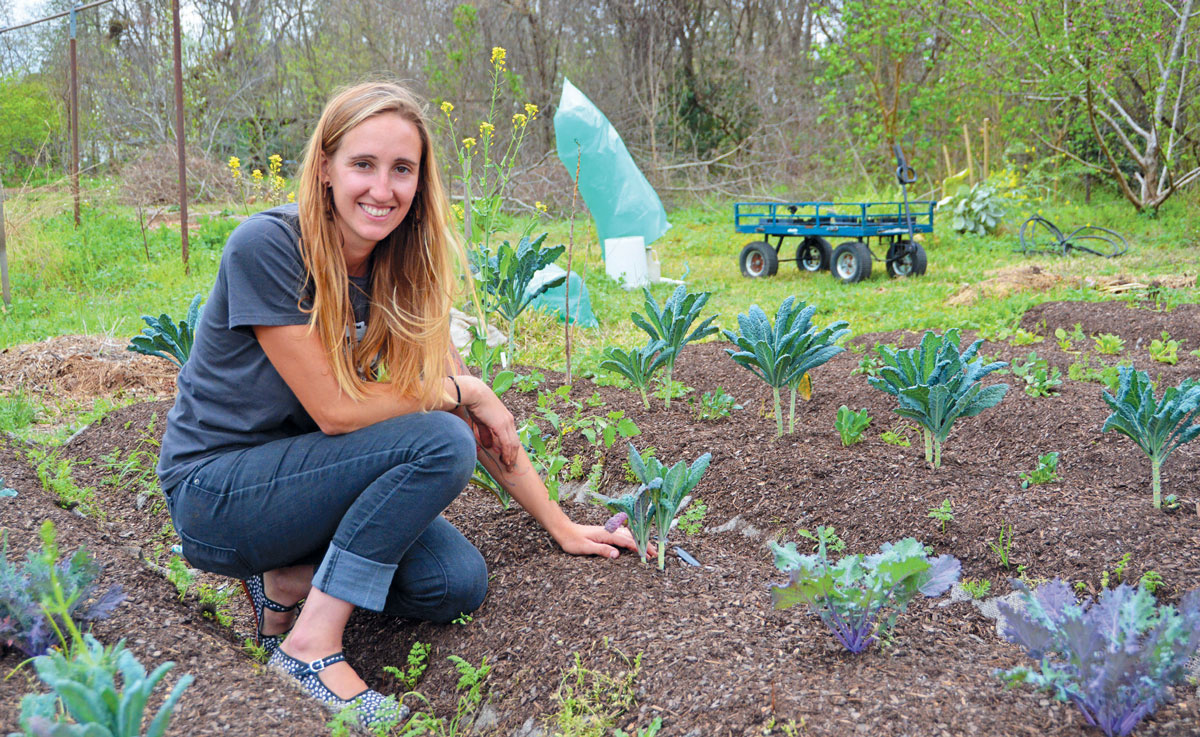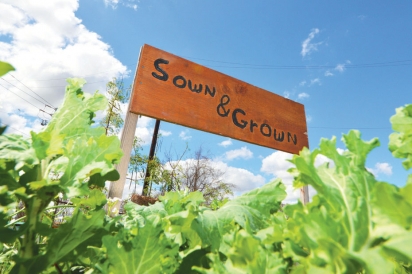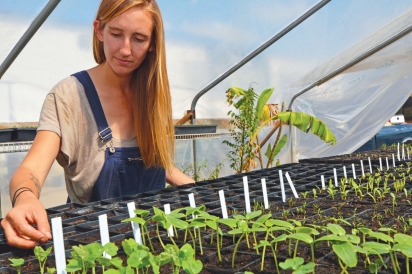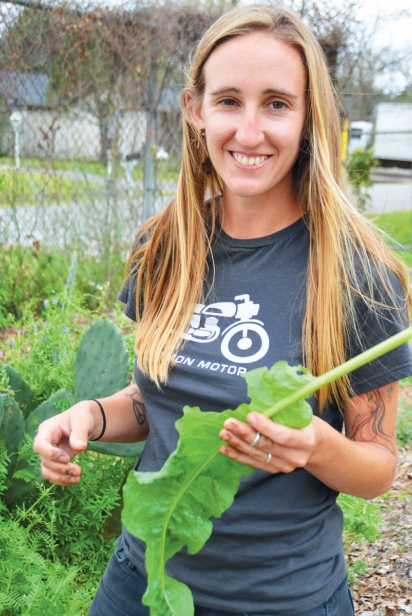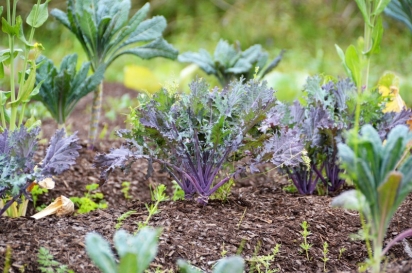Compassionate Farming at Sown & Grown
Urban Farmer connects components of care from soil to community
Combine one part knowledge, two parts experience and a hefty dose of passion; blend in humor, philosophy and determination; season with friendship and a dusting of compost, and behold: urban farm Sown & Grown. Becca Verm believes in compassionate urban farming that creates nutritious foods and nourishes connections for herself, her land and her community. Farmer Becca lets life thrive on her three-acre urban farm where she currently utilizes about ¾ of an acre and plans to expand to 1¼ at full production. “You’ll notice that weeding is not a high priority around here,” she says, nodding toward a few particularly wild beds teeming with edibles of all kinds. “Weeding causes excess soil disturbance, so that goes against the no-till method,” she explains.
“When I observe what’s growing over the course of the seasons I see how I am manipulating and improving the soil biology.” At Sown & Grown, what goes into the soil is just as important as what doesn’t: quality compost, dehydrated seaweed to assist new transplants, agricultural molasses to encourage microbial function, and a mulch system that eliminates bare soil and associated risks of excess nutrient leaching are the only amendments employed.
Sown & Grown follows the principles of permaculture, which Becca defines as a design methodology of systems that are self-sustaining based on three components: care for people, care for earth and fair share. “The less that I try to force my own ideas and perspectives onto the farm and just watch what’s happening as things grow, one, I find that the plants do better, and two, I’m better equipped each subsequent season,” she says. “If I’m only focused out here on growing things that are good for me and I neglect the entire rest of the ecosystem I’m not going to have a very productive farm. By caring for the earth in every way—every living creature, whether I think they are ugly or creepy or not—I am creating a natural ecosystem that will be self-regulating.”
Harvests are the basis of her growing community-supported agriculture (CSA) harvest subscription enterprise, which she started in October 2014. The $10-per-share cost may not equate to a fridge full of produce but double shares are an option and encouraged. Either way, members get seasonal goodness grown with care and intent. “It’s meant to be a format where you can really integrate it into your lifestyle in a way that makes the most sense for you as an individual. The thing is, I like this size because it does allow me to encourage people to go visit the farmers markets or other farms and see what other people are growing and be able to support more local produce,” says Becca, who is perennially supportive of her fellow cultivators. She hopes to reach production of 40 shares per week while maintaining commitments to farmers markets, so long as she isn’t pushing the land beyond its density ability or healthy capacity.
“That’s why I love CSAs, because they really, really can be the foundation upon which farmers can grow and blossom their business. And for the customer it is the best value because you’re going to be getting a good amount of produce for a pretty reasonable cost simply because you’re saying ‘I’ll take whatever you have to offer me,’” she says, adding that members are “always supportive and feel more like a family instead of a business transaction. It is one of the most satisfying and rewarding experiences—sharing food and watching new members meet each other on different levels.” In that vein she plans to host regular gatherings and open-farm days where members and volunteers can do light farmwork and enjoy one another’s company.
More of Becca’s thoughtful-yet-practical mindset is evident during a quick tour of the property, which is formatted to encourage productivity and alleviate risks—like those relentless floods of May 2015 that wiped out a good portion of her progress and from which she is still rebuilding. One proactive answer is planting into burlap bags acquired from local coffee roasters, which are given second lives with multiple purposes: weed reduction, flood mitigation and drought control (retaining moisture in the mulch), before ultimately breaking down and becoming part of the local ecology.
While there is no barn, Becca has certainly received her share of “barn raisers” via a vast network of collaborators, volunteers, supporters, friends, farmers and even the owners of the land she tends. She remains close with former colleagues and employers from previous growing experiences, such as brothers Tommy and Danny Garcia-Prats of nearby urban farm Finca Tres Robles. “We identify with the fact that farming is very much a community effort,” she says.
For Becca Verm, the larger picture of farming is to be mindful of the environment and the farm’s surroundings, from the soil biology to the plants to the critters and to her community. “At the end of the day [I am] asking myself: ‘Am I contributing to a more positive environment for the people of Houston or am I just in the way?’ So as long as I can still answer that I think that I am positively contributing to Houstonians’ life in the city, I think I should be doing what I’m doing.”


